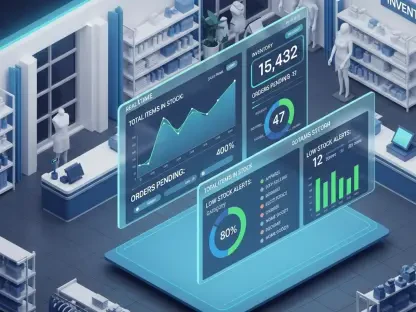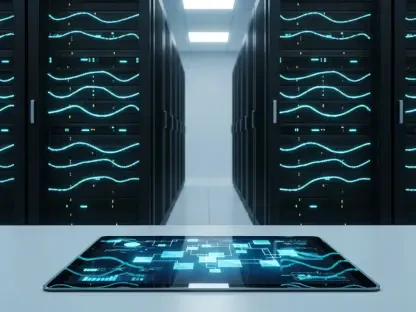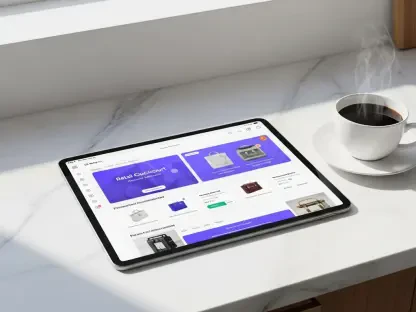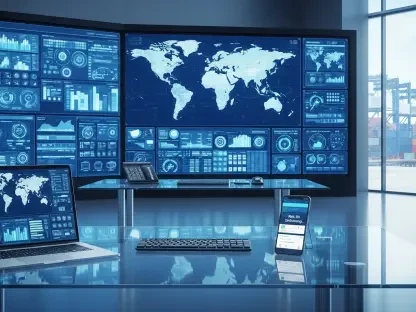The retail industry has undergone significant changes in recent years, especially following the disruption caused by the COVID-19 pandemic. As physical retail attempts to reinvent itself to draw consumers back into stores amidst the rise of digital and social commerce, the roles and responsibilities of retail employees have also evolved. Job titles and functions for store staff now reflect broader and more sophisticated roles, including product fulfillment, data gathering, omnichannel clienteling, and social media activations. This comprehensive transformation underscores the importance for retail employees to upskill, adapt, and align their competencies with the demands of the modern retail landscape.
Evolution of Retail Roles
Historical Context and Entry-Level Perception
Retail jobs have historically served as the gateway to employment for many individuals, providing essential skills and introducing them to the workforce. According to the National Retail Federation (NRF), a third of Americans began their professional lives in retail. While these jobs were often perceived as entry-level positions with limited scope, they played a critical role in helping young workers develop basic workplace competencies. However, the pandemic significantly disrupted traditional retail operations, leading the industry to reassess the function and purpose of physical stores, which are now expected to offer more than mere transactions and aim to provide enriched consumer experiences.
Emergence of New Roles
In response to these evolving consumer expectations and the heightened importance of customer experience, new roles have emerged that require broader and more sophisticated skill sets. These new positions, such as client advisors, brand ambassadors, and community consultants, encompass a range of responsibilities that reflect the changing landscape of retail. Employees are now engaged in tasks like product fulfillment, data gathering, omnichannel clienteling, and social media activations, making their roles more dynamic and integral to the success of the business. These expanded responsibilities necessitate a higher degree of professionalism and customer interaction, making it essential for retail employees to continuously upgrade their skills and align with industry demands.
Skill Development
Hard Skills in Retail
Retail jobs demand proficiency in a wide range of hard skills that are fundamental to the efficient operation of a store. Tasks such as inventory management, merchandising, and in-store marketing require a meticulous understanding of the store’s ecosystem. Efficiently handling inventory not only ensures that the store is well-stocked but also that products are readily available to meet consumer demand. Similarly, effective merchandising involves creating visually appealing product displays that attract customers and promote sales. Retail workers must also be adept at executing in-store marketing strategies that drive foot traffic and enhance the shopping experience. Mastering these hard skills is essential for retail employees to contribute significantly to the overall functionality and profitability of the store.
Soft Skills and Professional Growth
In addition to hard skills, soft skills play a crucial role in the development of retail employees. Team collaboration, client communication, and problem-solving are among the soft skills cultivated through daily interactions with colleagues and customers. Effective communication is paramount in establishing a positive rapport with customers, addressing their needs, and handling any issues that arise. Teamwork fosters a cohesive work environment, leading to improved customer service and operational efficiency. Problem-solving skills enable retail workers to quickly and effectively address challenges, enhancing the overall customer experience. These soft skills not only contribute to professional growth within the retail industry but also open doors to opportunities in related fields such as fashion, beauty, and luxury, where customer interaction and service quality are equally important.
Career Aspiration Alignment
Identifying and Focusing on Specific Skill Sets
Retail employees should strategically identify specific skill sets that align with their long-term career aspirations. Tailoring personal development efforts towards these skills can lead to increased job proficiency, satisfaction, and performance. For instance, an employee interested in pursuing a career in visual merchandising should focus on developing an eye for design and understanding consumer psychology to create compelling product displays. On the other hand, someone aiming for a role in customer relationship management might concentrate on honing communication and interpersonal skills. For those uncertain about their career paths, the diverse responsibilities inherent in retail roles provide valuable opportunities to explore various interests and aptitudes, making it an ideal environment for self-discovery and skill development.
Leveraging Current Opportunities
An effective approach to career development in retail involves working backwards from an ideal career goal, leveraging current job opportunities, and learning from professionals who have successfully transitioned from retail to other roles. Observing the career trajectories of these individuals can offer valuable insights into the skills and experiences required for different paths. Engaging with mentors, seeking feedback, and participating in training programs can help employees acquire the necessary competencies and navigate their career journeys. Proactively seeking opportunities, such as internal promotions, cross-functional projects, or networking with industry professionals, enables retail employees to align their current roles with their long-term career aspirations and make informed decisions about their professional growth.
Utilizing Management and Mentorship
Engaging with Store Managers and Colleagues
Engaging with store managers and colleagues is a vital aspect of personal and professional development in the retail industry. Managers often possess extensive experience and insights that can guide employees in their career paths. By expressing interest in specific areas, such as in-store technology demonstrations or social media activations, employees can access relevant opportunities that align with their career goals. Proactive engagement with managers to explore upskilling chances and potential for internal promotions can further facilitate career growth. Additionally, establishing strong relationships with colleagues fosters a collaborative environment where employees can share knowledge, learn from each other’s experiences, and collectively enhance their skills.
In-House Career Progression
Retailers are increasingly recognizing the value of promoting internal talent and providing opportunities for in-house career progression. Companies like Selfridges, which offer coveted internships exclusively to internal employees, exemplify the benefits of nurturing and advancing homegrown talent. Taking advantage of such opportunities enables employees to gain valuable experience, broaden their skill set, and advance their careers within the organization. Mentorship programs, where experienced colleagues and managers provide guidance and support, are instrumental in helping employees navigate their career paths effectively. By leveraging internal resources and fostering a culture of continuous learning and development, retailers can create a robust talent pipeline and ensure the professional growth of their workforce.
Product and Brand Knowledge
Enhancing Knowledge Base
In today’s retail landscape, consumers are more informed and discerning about the products and brands they choose. To meet these heightened expectations, retail employees must continuously enhance their knowledge base through active participation in training programs, in-depth product research, and staying updated with marketing campaigns and consumer feedback. Understanding the brand’s holistic vision, product features, and market performance equips employees to provide accurate information and personalized recommendations to customers. This deeper knowledge not only improves the customer experience but also builds confidence in the employees, enabling them to engage more effectively with consumers and foster brand loyalty.
Meeting Customer Expectations
By staying informed about the latest product developments and brand initiatives, retail employees can better assist customers and provide personalized recommendations. This level of expertise not only improves customer satisfaction but also fosters brand loyalty. Employees who are knowledgeable about the products they sell can build trust with customers and create a more engaging shopping experience. Building a strong knowledge base also empowers employees to handle customer inquiries more efficiently, address concerns effectively, and contribute to a seamless shopping experience. As retail employees become well-versed in their products and brands, they can offer a higher level of service and create meaningful connections with customers.
Engaging with Technological Advancements
Integration of Advanced Technologies
Modern retail has increasingly integrated advanced technologies to enhance in-store experiences and operational efficiency. Employees now interact with tools such as augmented reality mirrors, RFID tags, and consumer data tracking systems. Proficiency in these technologies not only improves job performance but also positions retail employees as valuable assets capable of navigating and optimizing new retail environments. Understanding and effectively utilizing these tools enable employees to provide innovative solutions and elevate the overall shopping experience for customers. For instance, augmented reality mirrors allow customers to virtually try on products, while RFID tags streamline inventory management and reduce stock discrepancies. Keeping abreast of technological trends and continuously updating skills is imperative for retail employees to maintain their relevance in an evolving industry.
Staying Updated with Technological Trends
As the demand for tech-savvy employees grows, staying updated with technological trends, including generative AI, will be crucial for retail staff. Being well-versed in the latest advancements allows employees to anticipate and meet consumer needs more effectively. Training programs and workshops focused on emerging technologies can help employees develop the necessary skills to leverage these innovations. Moreover, actively seeking opportunities to engage with new technologies within the workplace fosters a culture of continuous learning and adaptability. Retailers that invest in technology training for their employees will not only enhance team competency but also drive innovation and competitiveness in the marketplace. Embracing and mastering these advancements will enable retail employees to contribute significantly to the industry’s future.
Managerial and Leadership Skills
Developing Leadership Competencies
Retail roles provide early-career professionals with valuable opportunities to develop leadership and managerial skills. Successful sales associates can potentially transition into managerial positions, where they will hone competencies in team management, communication, and strategic decision-making. The retail environment is dynamic and fast-paced, requiring leaders who can think quickly, motivate their teams, and respond sensitively to consumer needs. Employees taking on managerial roles must balance operational tasks with people management, fostering a collaborative and performance-oriented culture. Effective retail managers are adept at setting clear expectations, providing constructive feedback, and driving team efforts towards common goals. As they navigate these responsibilities, they build a robust foundation for their leadership capabilities, preparing them for more advanced roles within or outside the retail sector.
Strategic Decision-Making and Team Management
In leadership positions, retail employees are also tasked with making strategic decisions that impact store performance and customer satisfaction. This requires a deep understanding of market trends, consumer behaviors, and operational metrics. Managers must analyze data to make informed decisions, optimize processes, and implement strategies that align with the company’s objectives. Effective team management involves creating an inclusive and supportive environment where employees feel motivated and engaged. Retail managers play a crucial role in performance management, training and development, and conflict resolution. By cultivating these skills, retail employees can transition into higher managerial roles, contribute to organizational success, and benefit from a diverse and rewarding career trajectory.
Overarching Trends
The transformation of the retail sector reflects a broader trend towards experiential and tech-enhanced consumer engagement. There is a growing consensus on the need for retail employees to diversify their skill sets, adapt to technological advancements, and align their professional growth with evolving market demands. Internal promotions and in-house training programs are increasingly prioritized, while the role of retail staff expands to encompass a more comprehensive range of responsibilities, emphasizing customer experience and brand representation. Companies that invest in the continuous development of their employees are better positioned to thrive in a competitive market, driving innovation and maintaining high standards of service. Embracing these trends ensures that retail employees are well-equipped to meet the challenges and opportunities presented by the industry’s ongoing evolution, making their roles both dynamic and integral to business success.
Conclusion
The retail industry has experienced major shifts in recent years, largely due to the impact of the COVID-19 pandemic. With the rise of digital and social commerce, physical retail is striving to reinvent itself to entice consumers back into stores. This shift has led to an evolution in the roles and responsibilities of retail employees. Modern store staff now have job titles and functions that encompass a broader and more sophisticated range of tasks. These roles include product fulfillment, data gathering, omnichannel clienteling, and social media activations.
As the retail landscape changes, the importance of upskilling for retail employees cannot be overstated. Today’s retail workers must adapt to these new roles and align their competencies with the demands of a modern shopping environment. This comprehensive transformation highlights that providing excellent customer service now involves a deeper understanding of various digital tools and platforms.
Additionally, employees are required to integrate online and offline shopping experiences seamlessly. This means they need to be proficient in managing inventory across multiple channels, engaging with customers through social media, and using data to personalize the shopping experience. This shift not only aims to meet consumer expectations but also to stay competitive in an increasingly digital and interconnected world. Therefore, the ability to continually learn and adapt is crucial for success in contemporary retail.









